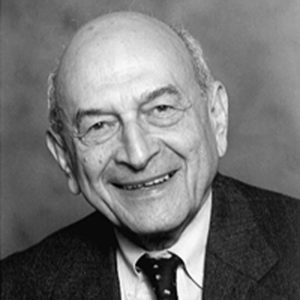Said equity planning was not radical
By Steven Litt, The Plain Dealer, December 21, 2019
“Former Cleveland city planning director Norman Krumholz, one of the nation’s most respected and progressive city planners, died December 21, 2019, in Rockville, Maryland. He was 92.

“Krumholz was part of a generation of urban thinkers who reacted against federally-funded Urban Renewal projects that displaced low income and minority residents.
“As planning director and later as a professor at Cleveland State University, Krumholz became a widely known advocate for equity planning, holding that planners should work to improve life for the city’s poorest residents rather than serve powerful interests in big development projects.
“Krumholz put his philosophy to work as Cleveland’s city planning director from 1969 to 1979, during the administration of Carl Stokes, the first black mayor of a major American city.
“Instead of producing a traditional plan for the physical development of Cleveland, Krumholz led the formulation of the city’s ‘Policy Planning Report’ — which the American Planning Association (APA) later called “a pioneering work that is the first example of equity planning being broadly applied in an American city.” APA designated the report a National Planning Landmark in 2003.
“The report stated that, ‘in a context of limited resources and pervasive inequalities, priority must be given to promoting a wider range of choices for those who have few, if any, choices.’ ” It was no accident, then, that the notion of “equity planning” began appearing in APA publications in the 1970s.
“Krumholz said equity planning was not radical in nature, calling it instead an appropriate way to address the ‘inherently exploitative nature’ of urban development, which sorts people by social class and consigns ‘the poorest and darkest to the central city or first-ring suburbs.’ ”
Norman Krumholz received his master’s degree in city and regional planning from Cornell University in 1965. He became assistant director of the Pittsburgh City Planning Commission, a post he held until moving to Cleveland in 1969. After 10 years as Cleveland’s planning director, and then leading the Cleveland Center for Neighborhood Development (1979-1984), he became a professor in the College of Urban Affairs, Cleveland State University. He also served on the Cleveland City Planning Commission, 2006-2014.
A longstanding member of APA, Krumholz served as APA president, 1986-1987, was a member of the APA Board, 2002-2005, and was president of AICP, 1999-2001. He received the APA Award for Distinguished Leadership in 1990.
He was the coauthor of several books, including, with John Forester, “Making Equity Planning Work,” 1990. The book is considered a classic, and APA listed it as one of the 100 Essential Books of Planning in the 20th century. The Cleveland Foundation recently funded a follow-up volume, “Advancing Equity Planning Now” (Cornell, 2018). Krumholz edited the volume and wrote the introduction. In 1999, with Dennis Keating, Krumholz co-authored “Revitalizing Urban Neighborhoods.”
In 2003, Krumholz was inducted into the College of Fellows of the American Institute of Certified Planners, which recognized him as “a developer of equity planning, an educator to thousands, and an author who inspired a nation of planners.”
In an October 2019 article, “Bringing equity to the forefront of urban planning,” Benjamin Schneider wrote, “Since Krumholz’s tenure in Cleveland, many of his efforts were rolled back, and few other planners even attempted the depth of reforms he advocated. ‘Our model, after all, asked city planners to be what few public administrators are: activist, risk-taking in style, and redistributive in objective,’ Krumholz wrote. Today, the word equity appears on nearly every urban planning document.”
You can read the full obituary in the Cleveland Plain-Dealer here.
